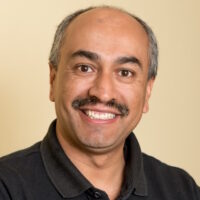
Key Quote
“The rapid growth in computer power makes our possibilities almost limitless. While this underlines the necessity of using technology responsibly, it is also great for democracy because more access means more knowledge and more knowledge means more empowered citizens all over the world—individuals empowered to not only fight for their rights online but in the streets and at the ballot box as well.”
Dr. Walid Al-Saqaf is a Yemeni academic, technologist, software developer, and free-speech advocate based in Sweden. With the added background of being both a computer scientist and a former journalist, he believes strongly in the power of the internet and other forms of technology to advance freedom of expression and strengthen democracy around the world. His many research projects have aimed to do just that—empower individuals with information-sharing capabilities even amidst the chaos of the Arab Spring or the pain of Yemen’s civil war. Today, he is focused on increasing access to technology in order to bring more democratic empowerment to every corner of the globe.
Dr. Al-Saqaf grew up in Yemen at a time when democracy and freedom of expression were often restricted. But, with the rise of the internet, this future computer engineer saw an opportunity. He believed that open internet access and free speech online could hold the key to democratization in his own country and around the world. And so, while still an undergraduate student in the 1990s, he created YemenTimes.com as the website of Yemen’s first-ever English newspaper: Yemen Times (which his late father Prof. Abdulaziz Al-Saqqaf established). After his father passed away in 1999, he took over as the newspaper’s editor-in-chief and publisher and emphasized connecting it to the world by enhancing the website—adding new sections, automating how it was produced, and even adding a special page for Yemenis abroad.
Then, while pursuing a master’s degree, Dr. Al-Saqaf launched a news aggregation service called YemenPortal.net in 2007. His work and that of his father all had a similar goal: to help fellow Yemenis access a diverse array of perspectives from various news sources—and ultimately enhance freedom of expression in Yemen. “With YemenPortal.net, I wanted an open platform where Yemenis would be able to get all different types of opinions—pro-government, opposition, and neutral—so they could make up their own minds,” Al-Saqaf explains, “which is key to being able to participate fully in society as an active citizen.”
But the government in Sanaa was not quite so keen. The portal was blocked within a year. Dr. Al-Saqaf, however, was undeterred.
He quickly got to work developing a new tool to bypass that government censorship. The mapping and circumvention service he developed, Alkasir, was initially designed to help users access YemenPortal.net. Yet it soon came into much wider use as the Arab Spring unfolded across the Middle East—and as government filtering of news sites and social media became more pervasive. Among those who made notable use of Alkasir were some Syrian activists who opposed to the Assad regime. They had previously been communicating via Skype. But when government officials blocked the platform, Dr. Al-Saqaf’s tool became instrumental in their ability to communicate—particularly when it came to understanding when and where the regime’s military was preparing to attack. In his PhD dissertation, Dr. Al-Saqaf refers to an anonymous statement by one of those Syrian activists considering Alkasir to be a lifesaver: literally.
“Alkasir was a sort of proxy tool that introduced split tunneling, which is used by some censorship-circumvention tools today,” Dr. Al-Saqaf said. “The primary goal was simple: to maximize the ability for people to access and share information.”
It’s a theme that has been consistent across Dr. Al-Saqaf’s work.
For instance, following the success of Alkasir, he began consulting on a new project: the Yemeni Network for Emergency Exchange of Telecommunications (YNEXT). YNEXT was a project implemented in 2014 by the Yemeni Organization for Development and Exchange Technology (YODET) to install solar-powered, do-it-yourself satellite internet hubs that provide internet access to journalists and activists in the case of total internet shutdowns. It is an early project similar to those that utilize SpaceX Starlink services to provide internet access in Ukraine following the Russian invasion. YNEXT’s goal was to expand access to the internet for those who live in remote areas—or, in the case of those suffering through Yemen’s civil war, whose internet capability had been shut off deliberately or due to clashes near towers. “Information is power,” Dr. Al-Saqaf says. “If tragedies are happening in a country, then it is important that they be shown to the outside world. Access to the internet is critical for that to occur.”
Another area of research for Dr. Al-Saqaf is how blockchain technology can be applied beyond the realm of fintech. “Blockchain actually has a lot of potential when it comes to decentralized communication and peer-to-peer networking,” Dr. Al-Saqaf explains. “We’re still at the theoretical stage right now, but one of the things I’m looking into is how it can assist journalists who want to verify the authenticity of photos and other sources of digital information. It’s a potential breakthrough that could have huge implications if larger media companies were to adopt it.”
When he thinks about the future of democracy and technology, Dr. Al-Saqaf knows that there are several looming challenges. He points to structural issues such as bridging the digital divide between countries like his adopted Sweden (in which nearly all Swedes have access to the internet) and his native Yemen (where only about a quarter do). He also cites the importance of ensuring a more private, user-centered experience for citizens online. But he sees plenty of opportunities as well. For instance, there are initiatives like YNEXT that can bring access to more people around the world. Dr. Al-Saqaf also believes that the private sector has a big opportunity to be a part of the solution when it comes to user-centeredness. “Private businesses provide innovation, creativity, growth, and opportunities that make all of our lives better every day. They have real potential to use that power of innovation to enhance privacy and ensure a more user-centered approach without the government mandating it,” Al-Saqaf says.
“All in all, the ease of internet access and affordability has never been better and we are even beginning to see more people get connected in remote parts of the world,” Al-Saqaf says. “The rapid growth in computer power makes our possibilities almost limitless. While this underlines the necessity of using technology responsibly, it is also great for democracy because more access means more knowledge and more knowledge means more empowered citizens all over the world—individuals empowered to not only fight for their rights online but in the streets and at the ballot box as well.”
Key Takeaways
- While still an undergraduate student in the 1990s, supported his father’s renowned newspaper, Yemen Times, by creating its website YemenTimes.com, allowing it to be read by anyone in the world. Then, while pursuing a master’s degree a decade later, Dr. Al-Saqaf launched a news aggregation service called YemenPortal.net. Both projects were designed with a similar goal: to help fellow Yemenis access a diverse array of perspectives from various news sources…But the government in Sanaa was not quite so keen. The portal was blocked within a year.
- He quickly got to work developing a new tool to bypass that government censorship. The mapping and circumvention service he developed, Alkasir, was initially designed to help users access YemenPortal.net. Yet it soon came into much wider use as the Arab Spring unfolded across the Middle East—and as government filtering of news sites and social media became more pervasive.
- Following the success of Alkasir, he began consulting on a new project: the Yemeni Network for Emergency Exchange of Telecommunications (YNEXT). YNEXT was a project implemented in 2014 by the Yemeni Organization for Development and Exchange Technology (YODET) to install solar-powered, do-it-yourself satellite internet hubs that provide internet access to journalists and activists in the case of total internet shutdowns…YNEXT’s goal was to expand access to the internet for those who live in remote areas—or, in the case of those suffering through Yemen’s civil war, whose internet capability had been shut off deliberately or due to clashes near towers.

